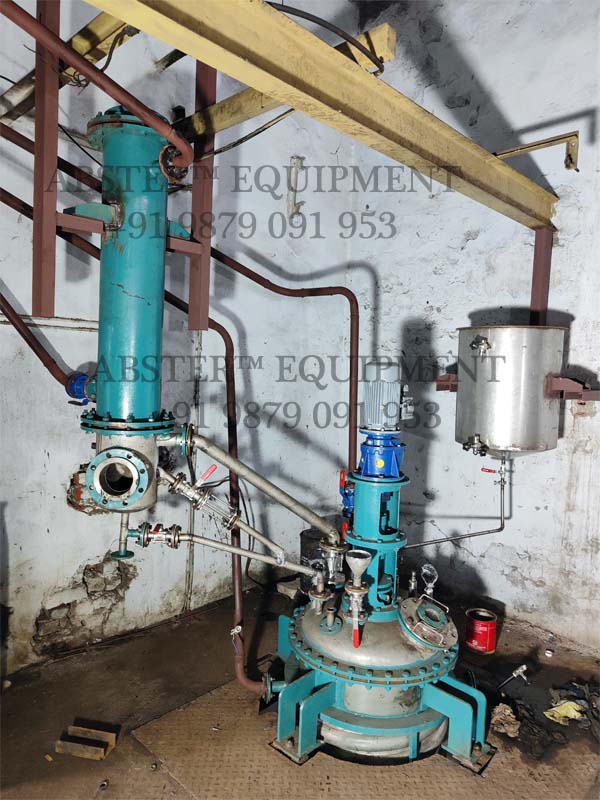
Acrylic Emulsion in Paints
The most common type of emulsions used in paints are pure and styrene acrylic emulsions. These resins are economical and are easily available. Emulsion based paints are free of solvents and are fast replacing solvent based paints due to its superior functional and environmental friendly properties.
Acrylic Emulsion Resin Plants are made from best quality material such as SS 304 /SS 316L and used in Resin, Pharmaceuticals, Chemicals, paints, and other Industries. Abster Can supply acrylic resin plants in India with various specification and configurations to manufactur acrylic emulsion with different formulations bases on your Reasearch and Devlopment. The Manufactuirng of acrylic emulsion varies greatly from product to product in these resin manufacturing plants. Our resin manufacturing plants includes solvent based resin plants that can be used for production of paints, coatings, stains, and surface treating products. We can custmize the plant as per your requirment.
Different types of emulsions used in paints are pure and styrene acrylic emulsions. These emulsions are economical and are easily available. Emulsion based paints are free of solvents and are fast replacing solvent based paints due to its functionality and environmental friendly properties. The processes involved in the formation of acrylic emulsion resin are complex and vary extensively. The production of low molecular weight dispersant product generates significant quantities of wastes.
The major operations involved in the manufacture of polyester resin are esterification and blending – which are carried in their respective kettles. The most common raw materials used are polypropylene glycol, melic anhydride and styrene monomer. In addition small quantities of inhibitors and other additives are required for the process.
The process of Polyester Resin manufacaturing involved is poly condensation reaction and blending the polyester resin with the monomer. Due to the sensitivity of polyester resin to contamination; in the course of condensation reaction and during subsequent handling the material of construction must be carefully selected.
The esterfication reactor vessel is changed through a manhole with required amount of glycol and the solid anhydride. The mass is heated up to 200°C under agitation and inert gas N2 is slowly applied. The partial condenser condenses the glycol but process the water to the total condenser. The esterification is continued until a predetermined acid value 10 to 15 is reached. After achieving the predetermined viscosity the heating is stopped and the batch is dropped in to the blending kettle. In the blending kettle the batch is cooled to 100 – 102°. Styrene is pumped in the blender and viscosity is adjusted until the batch attains room temperature. The batch is then pumped through filter in to the storage tanks.
7.5 ton to 10 ton depending on % solid base.
Copyright © 2022, Abster™ Equipment All Rights Reserved.